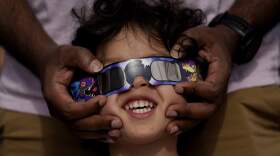-
As a shortage of growth hormone used to treat rare diseases in children drags on, families and doctors are struggling with insurers' requirements to get prescriptions filled.
-
Kids have too much screen time and not enough autonomy, says author Jonathan Haidt. His book The Anxious Generation argues this has caused an epidemic of mental illness and suggests ways to fix it.
-
So far this year, the U.S. has seen more than 120 cases of the highly contagious disease — more than double the cases for all of 2023. Still, chances of widespread transmission remains low.
-
A pilot program in elementary schools gives kids meaningful work as a way to handle post-pandemic behavior problems.
-
Scientists are developing artificial wombs to rescue babies who would die or end up severely disabled because they are born very prematurely. The research is generating excitement, but also concerns.
-
The group found high levels of sodium and the presence of heavy metals in meal kits it tested. A Kraft Heinz spokesperson said all of its products meet strict safety standards.
-
Teen vaping is trending downwards these days. But data from Colorado and around the country show the generation that made Juul cool is still hooked on nicotine.
-
How do you watch a solar eclipse with kids, keep them safe and explain what’s going on up there?
-
Sam and John Fetters are identical twins with autism. But Sam is in college, while John still struggles to form sentences. Their experience may shed light on the disorder's mix of nature and nurture.
-
The founder of the Child Mind Institute explains why young people are experiencing unprecedented levels of anxiety and depression — and what parents can do about it. His book is Scaffold Parenting.
Play Live Radio
Next Up:
0:00
0:00
Available On Air Stations







